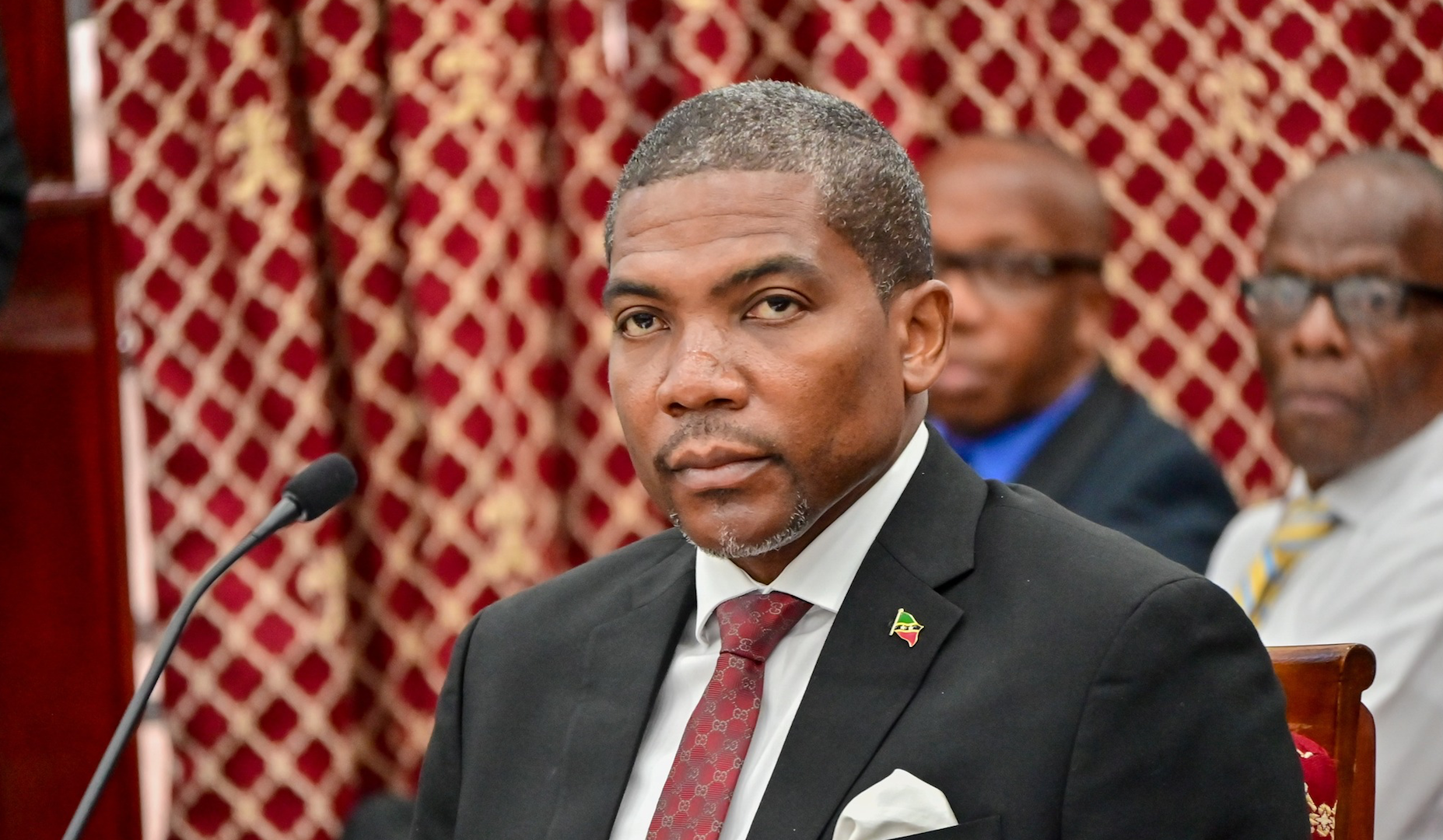Prime Minister Advocates for Enhanced OECS Cooperation on Collective Bargaining at Seventh Assembly.
The 7th Sitting of the OECS Assembly, a historic event marking the first time the assembly convened in St. Vincent and the Grenadines, provided a platform for regional leaders to address critical issues facing the Eastern Caribbean. Prime Minister of St. Kitts and Nevis, Hon. Dr. Terrance Drew, delivered a compelling address centered on the vital importance of regional unity and collaboration for achieving both domestic and international progress. His remarks, delivered alongside Member of the Opposition, Hon. Alexis Jeffers, underscored St. Kitts and Nevis’ commitment to regional integration and the pursuit of shared prosperity within the OECS.
Prime Minister Drew’s intervention emphasized that a unified OECS wields greater influence and bargaining power, enabling member states to secure more favorable outcomes. He argued that collective action, rather than individual pursuits, unlocks significant benefits for the entire region. This principle of unity, he posited, translates into tangible improvements in areas such as healthcare and energy. He highlighted the success of regional procurement systems in the pharmaceutical sector, citing the accessibility and affordability of insulin within the OECS as a direct result of collective purchasing power. This system, he explained, allows member states to negotiate lower prices for essential medications, ensuring that vital treatments like insulin are readily available and affordable for their citizens. This achievement, he argued, serves as a potent example of the tangible benefits derived from regional cooperation.
Further illustrating the potential of collective action, Prime Minister Drew called for a similar approach to energy procurement. Recognizing the exorbitant energy costs across the OECS, some of the highest globally, he proposed leveraging the combined purchasing power of the region to negotiate significantly lower energy prices. By acting as a single entity, he argued, the OECS could dramatically reduce energy costs, potentially achieving rates as low as 10 cents per unit, offering significant economic relief to member states and their citizens. This, he emphasized, would not only stimulate economic growth but also improve the overall quality of life within the region.
Beyond the economic sphere, Prime Minister Drew underscored the importance of a unified OECS presence on the global stage. He contended that a cohesive and collaborative approach amplifies the region’s voice in international forums, leading to more impactful outcomes. By presenting a united front, the OECS can effectively advocate for its interests and secure greater consideration on matters of global importance, thereby enhancing its influence and securing favorable outcomes in international negotiations.
Prime Minister Drew’s commitment to collaborative governance extended beyond the regional level. Reflecting on his own leadership in St. Kitts and Nevis, he shared his proactive approach to fostering bipartisan cooperation. Recounting his outreach to the Leader of the Opposition shortly after his election, he emphasized his belief in prioritizing national development above political differences. This commitment to collaboration, he explained, yielded significant progress on critical national projects, most notably the long-stalled geothermal energy project in Nevis. Decades of political gridlock had hampered the development of this valuable resource until his administration and the opposition agreed to put aside their differences and work together. This bipartisan cooperation, he emphasized, paved the way for the project’s imminent commencement, demonstrating the transformative potential of political unity.
The successful advancement of the geothermal project in Nevis, according to Prime Minister Drew, serves as a compelling testament to the power of collaboration. By transcending political divisions and prioritizing national interests, the government and opposition were able to unlock the potential of this vital resource, promising substantial economic and environmental benefits for the nation. This achievement, he argued, should serve as a model for future collaborations, demonstrating that unity can overcome longstanding obstacles and pave the way for meaningful progress.
In his concluding remarks, Prime Minister Drew reiterated his call for continued efforts towards strengthening regional unity. He urged fellow leaders and parliamentarians to recognize the profound benefits that stem from a cohesive and collaborative approach, emphasizing that a unified OECS translates to tangible improvements in the lives of all its citizens. This, he asserted, should be the driving force behind all regional endeavors, ensuring that the pursuit of unity remains at the forefront of the OECS agenda. The presence of both government and opposition representatives from St. Kitts and Nevis at the 7th Sitting of the OECS Assembly reinforced the nation’s commitment to regionalism and cooperative governance, signifying a shared dedication to building a stronger and more prosperous Eastern Caribbean. This collaborative spirit, he concluded, is essential for achieving the shared goals of the OECS and ensuring a brighter future for all its member states.
Share this content:












Post Comment